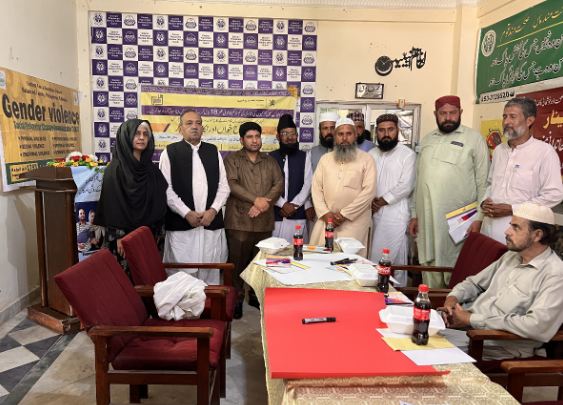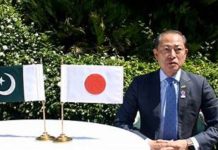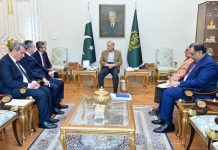GUJRAT, SEPT 30 /DNA/ – Participants of a training session for Nikah Khawans and marriage registrars, organized in collaboration with the District Population Welfare Office, Gujrat, called on provincial legislators to urgently strengthen legal frameworks to protect the rights of girls and boys in Pakistan. Referring to the ICT Child Marriage Restraint Act, the participants stressed that all provinces should adopt and implement similar legislation to curb the practice of underage marriages.
The training, which brought together a large number of Nikah Khawans and registrars, provided a platform to reflect on the social, legal, and health implications of early marriages. Many participants expressed concern that child marriage continues to undermine fundamental rights, particularly the right to education, health, and personal development.
Umer Farooq, District Population Welfare Officer, Gujrat, described child marriage as a serious health risk. He noted that due to complications such as fistula, sudden increases in blood pressure, and excessive bleeding during pregnancy and childbirth, the rates of maternal and infant mortality in Pakistan remain alarmingly high. These realities, he said, make it imperative to raise the minimum age of marriage for girls to 18 years.
Participants also called for the introduction of mandatory blood testing prior to marriage to protect future generations from chronic and life-threatening diseases, including thalassemia. They further emphasized the crucial role of Nikah Khawans in ensuring that marriages are contracted only with the free and informed consent of both adult individuals. They pointed out that while girls are often forced into marriage, boys too can face pressure from their families to marry at an early age, sometimes to protect family property.
Advocate Khawaja Zahid Nasim, legal consultant for PODA, said that under Articles 35 and 38 of the Constitution, all provinces are bound to make laws for the protection of the child, the mother, the family, and marriage. He noted with concern that despite the presence of these provisions, which safeguard the family setup and promote social justice, the provinces have not adequately addressed these constitutional obligations. He underlined the urgent need for consistent legislation across the country to protect the rights of children and families.
Discussions also touched on harmful practices that perpetuate child marriage. It was noted that in many rural and marginalized communities, families marry off their daughters to settle debts or resolve disputes, leaving the girls vulnerable to abuse and lifelong deprivation. The participants collectively committed not to solemnize underage marriages and endorsed the practice of requiring identity cards as a prerequisite for marriage registration. This, they observed, could serve as a practical step to verify the age of the bride and groom and thereby reduce the incidence of child marriages.
Participants further recommended that clear criteria be developed for the official appointment of Nikah Khawans, along with salaries, so that they can work independently and without local pressures. They also termed digital skills as essential for themselves to perform their duties effectively and transparently.
A consensus emerged that the minimum age of marriage for girls must be fixed at no less than 18 years across all provinces. Furthermore, participants urged that violations of such laws be treated as cognizable, non-bailable, and non-compoundable offences to ensure effective deterrence and accountability.
The training was conducted by Advocate Khawaja Zahid Nasim and facilitated by Nabeela Aslam and Sohail Yousaf. It was part of the project “Reduce Early Marriages to Enhance Gender Equality,” supported by the Norwegian Embassy in Islamabad and implemented by PODA across 41 districts of Punjab.
The discussions were framed in the light of national and global challenges linked to child marriage. According to UNICEF, Pakistan is home to nearly 19 million child brides, placing it among the countries with the highest number of underage marriages. Approximately 18 percent of girls in Pakistan are married before the age of 18, and around 4 percent before the age of 15. Early marriages contribute to higher maternal and infant mortality rates, limit girls’ educational attainment, and restrict their economic opportunities, trapping families in cycles of poverty.
The event concluded with a pledge from Nikah Khawans and registrars to play their part in preventing underage marriages, ensuring the protection of children’s rights, and supporting the development of healthier and more equitable communities across Pakistan.

















